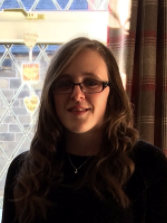“If we’re not counted, we don’t count”
Lesbian, gay, bisexual, transgender and queer (LGBTQ+) people report poorer mental health and experience a range of barriers to accessing and engaging with mental health services. Routinely collected data from mental health services, containing detailed information about patient contact with mental health services, can be used to explore inequalities in access to care. Understanding patient characteristics can help to improve access to services, improve the services themselves, ensure inclusivity, and reduce inequalities.
However, a lack of data on sexual orientation and gender identity in the past has limited the extent which health inequalities LGBTQ+ people face can be explored. Insufficient data has been previously linked to stigma and discrimination – “if we’re not counted, we don’t count”. There is also a significant lack of evidence on the impact of the COVID-19 pandemic on LGBTQ+ people (read our systematic review).
My PhD aims to explore routinely collected mental health service data and access to mental health services for underserved population groups, such as LGBTQ+ people, during the COVID-19 pandemic. This will not only add to the evidence base around the mental health needs of LGBTQ+ people and their experiences of accessing mental health services, but also intends to support the call to improve data collection of sexual orientation and gender identity.

Author: Hayley Lowther is an ARC NWC PhD student based at Lancaster University, undertaking research into access to mental health services during the COVID-19 pandemic. Her interests lie in understanding how to improve equitable access to mental health care for underserved population groups, such as LGBTQ+ people. In addition to a background of working in local authority settings with children and young people, Hayley has been involved in research on a range of health topics including brain tumour removal, chronic pain, stroke, air quality, and offender wellbeing.
Links:
Systematic review – McGowan VJ, Lowther HJ, Meads C. Life under COVID-19 for LGBT+ people in the UK: systematic review of UK research on the impact of COVID-19 on sexual and gender minority populations. BMJ Open. (http://dx.doi.org/10.1136/bmjopen-2021-050092)
LGBT Foundation – Sexual Orientation Monitoring: If we’re not counted, we don’t count! (https://lgbt.foundation/news/sexual-orientation-monitoring-if-were-not-counted-we-dont-count/126)
LGBT Foundation – Hidden Figures: The impact of the COVID-19 pandemic on LGBT communities in the UK (https://lgbt.foundation/coronavirus/hiddenfigures)
Twitter – https://twitter.com/hlowtherpayne
Email – h.j.lowther3@lancaster.ac.uk
ORCID – https://orcid.org/0000-0001-7500-0513